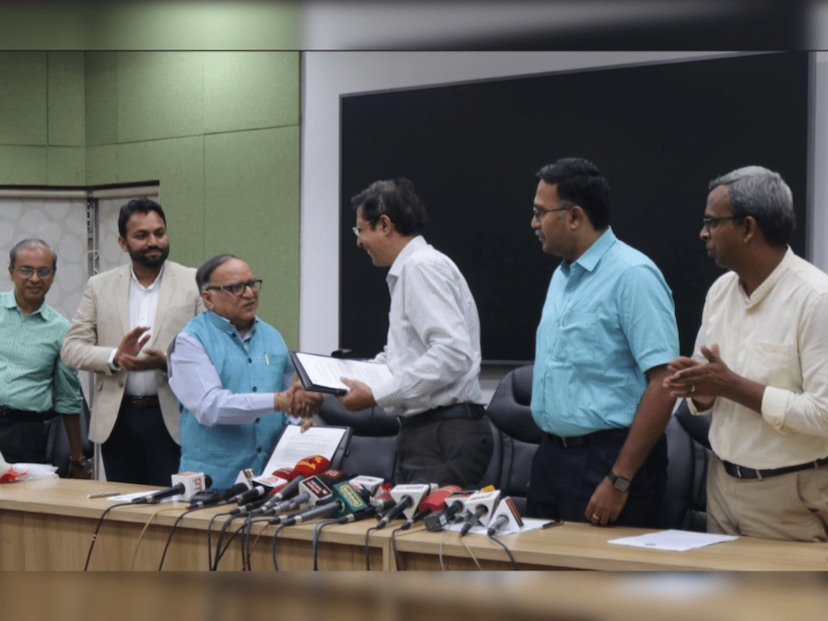IIT Madras and IIT Ropar Partner: 5 Benefits for BS Data Science Students

IIT Madras and IIT Ropar Partner to Enhance Opportunities for IITM BS (Data Science) Students
Targeting students registered in the IIT MBS (Data Science and Applications), the cooperation between IIT Madras and IIT Ropar marks a major turning point in the field of higher education. This alliance provides students with a special mix of theoretical knowledge and practical experience, therefore improving academic and research possibilities. This project not only increases the extent of education but also provides direct routes for additional studies and professional development by using the advantages of both schools. The following are the five main advantages this cooperation offers for IIT Madras BS (Data Science) students.
With possibilities for direct admission into its MS programs, this cooperation provides a special route for these students to finish course credits at IIT Ropar. Prof. V Kamakoti, Director of IIT Madras, and Prof. Rajeev Ahuja, Director of IIT Ropar, formally signed the Memorandum of Understanding, therefore significantly broadening the academic horizons of both schools. By enrolling in particular courses at IIT Ropar, this cooperation lets students fulfill their IITM BS degree requirements, therefore promoting an academic resource and expertise exchange between the two esteemed universities. Read more, IIT JAM 2025 registration starts on 3 September 2024, All Details Provided Here


Key Highlights of the Collaboration:
- Direct MS Admission: IIT Madras BS (Data Science) graduates with a specified CGPA will be eligible for direct admission to IIT Ropar’s MS program without needing GATE scores, streamlining the path to postgraduate education.
- On-Campus Learning: Students in the IITM BS program can spend up to a year at IIT Ropar, engaging in hands-on learning experiences, research programs, internships, and projects under the guidance of IIT Ropar faculty.
- Research and Internship Opportunities: The partnership opens doors for IITM BS students to apply for research programs at IIT Ropar during the summer, providing them with valuable exposure to cutting-edge research and academic projects.
- Student Exchange Programs: IIT Ropar students will have the chance to take courses in data science and programming offered through IIT Madras’s BS program, enhancing their skills in these in-demand fields.
- Expanded Academic Collaboration: The collaboration supports additional student exchange initiatives, internship opportunities, and other joint activities that aim to bolster the academic and professional development of students from both institutions.
Prof. V Kamakoti, Director of IIT Madras, praised the partnership, stating, “This collaboration is a visionary move that aligns with our goal of democratizing higher education opportunities for all. By offering IITM BS students the chance to pursue postgraduate degrees at IIT Ropar, we are creating new career pathways, particularly for students from rural India. I hope other institutions will be inspired to follow this example.”
Prof. Rajeev Ahuja, Director of IIT Ropar, expressed enthusiasm for the initiative, noting, “This partnership represents a transformative step in education and research. It not only expands academic and research horizons but also creates opportunities for meaningful exchanges between students and faculty, setting new standards for success in higher education.”

Background on IIT Madras BS (Data Science) Program
Launched in June 2020, the IIT Madras BS in Data Science and Applications is a four-year program designed to provide high-quality education through a blend of online content delivery and in-person assessments. With over 30,000 students actively participating, the program emphasizes interactive and flexible learning, making it accessible to students nationwide. This new collaboration with IIT Ropar follows similar partnerships with other leading institutions like IIT Gandhinagar and the Chennai Mathematical Institute (CMI), which have also opened their campus courses to IIT Madras BS students.
Prof. Vignesh Muthuvijayan, Coordinator of the BS Degree at IIT Madras, highlighted the impact of these collaborations: “Such partnerships greatly enhance opportunities for our students, allowing them to gain practical experience and expand their learning beyond the virtual classroom. We are excited about the potential for growth and innovation that this collaboration with IIT Ropar brings.”
For more details about this partnership and its benefits, students and interested parties are encouraged to visit the official websites of IIT Madras and IIT Ropar.

Conclusion
The strategic cooperation between IIT Madras and IIT Ropar shows how inter-institutional cooperation may change educational environments and empower students with a lot of fresh chances. From easy access to postgraduate programs to hands-on research and industry exposure, our effort opens the path for IITM BS (Data Science) students to have a more enhanced learning experience. As these advantages start to show, the cooperation will surely establish a standard for academic excellence and inspire other similar alliances stressing student development and innovation in higher education.
Also, read

Meet Tanu Bhatnagar, an educational expert with extensive experience in teaching, research and mentoring.With a decade in education and research, Tanu combines academic expertise with engaging storytelling. Her research background ensures every article is well-researched and insightful. Beyond textbooks, Tanu's expertise spans writing, exam preparation, economic trends, and global education, delving into the realms of spiritual awakening. This diverse perspective shines through in his writing, offering a fresh take on education. Join Tanu and CollegeChalo for an enriching learning adventure, where his passion ignites yours, and his words light your way.









